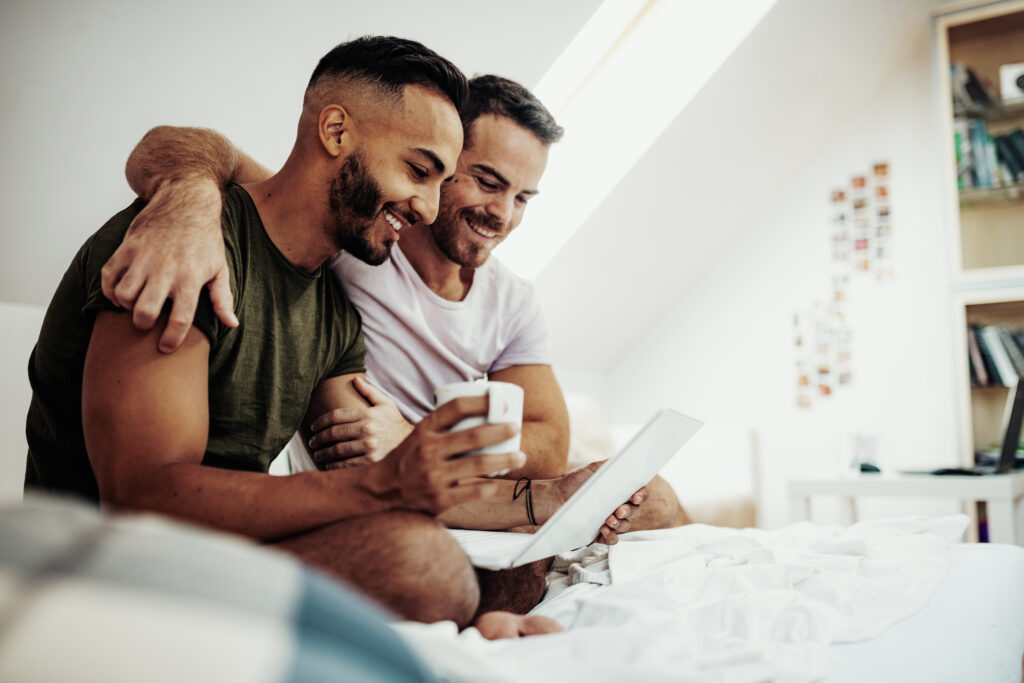In today’s ever-evolving society, the journey of love knows no boundaries. LGBTQ couples, just like any other couple, face unique challenges in their relationships. However, societal prejudice, discrimination, and the search for acceptance can add additional complexities. This is where LGBTQ couples therapy can play a crucial role in nurturing love and resilience. In this article, we will explore the importance of LGBTQ couples therapy, its benefits, and how to find qualified professionals near you.
Contents
- 1 Understanding LGBTQ Couples Therapy
- 2 Common Challenges Faced by LGBTQ Couples
- 3 Finding LGBTQ Couples Therapy Near You
- 4 Qualities to Look for in an LGBTQ Couples Therapist
- 5 The Process of LGBTQ Couples Therapy
- 6 Communication and Conflict Resolution
- 7 Building Trust and Intimacy
- 8 Coping with External Challenges
- 9 Embracing Individual and Collective Identities
- 10 Celebrating Love and Resilience
- 11 How LGBTQ Couples Therapy Can Benefit Your Relationship?
- 12 Conclusion
Understanding LGBTQ Couples Therapy

LGBTQ couples therapy is a form of counseling or psychotherapy that specifically addresses the unique needs and concerns of LGBTQ couples. It aims to support and strengthen the relationships of same-sex, transgender, or non-binary partners by providing a safe and affirming space to explore and address their issues.
Here are some key aspects of LGBTQ couples therapy:
- Affirming and Inclusive Environment: LGBTQ couples therapy provides a safe, non-judgmental, and inclusive space where partners can feel comfortable discussing their experiences, identities, and relationship dynamics. Therapists who specialize in LGBTQ issues are knowledgeable about the specific challenges and concerns faced by LGBTQ individuals and couples.
- Understanding Unique Relationship Dynamics: LGBTQ relationships may have different dynamics compared to heterosexual relationships. Couples therapists trained in LGBTQ issues have a deeper understanding of these dynamics and can help couples navigate issues related to coming out, disclosure, gender identity, sexual orientation, and societal pressures.
Common Challenges Faced by LGBTQ Couples
LGBTQ couples can face a variety of challenges that are unique to their sexual orientation or gender identity. While each couple’s experiences may differ, here are some common challenges that LGBTQ couples may encounter:
- Coming Out and Disclosure: Coming out as LGBTQ and disclosing one’s sexual orientation or gender identity to family, friends, and colleagues can be a significant challenge. This process can be emotionally demanding and may impact the dynamics within the relationship.
- Social Stigma and Discrimination: LGBTQ couples may face social stigma, discrimination, and prejudice from society, which can lead to additional stress and strain on the relationship. Negative reactions from family members, friends, or communities can create tension and affect the couple’s well-being.
- Lack of Legal Protections: In many parts of the world, LGBTQ couples face legal inequalities and lack the same protections and rights as heterosexual couples. This can impact issues such as marriage, adoption, parenting, healthcare, and inheritance, adding additional complexities to the relationship.
- Internalized Homophobia or Transphobia: Some LGBTQ individuals may internalize negative beliefs and stereotypes about their sexual orientation or gender identity. Internalized homophobia or transphobia can affect self-esteem, self-acceptance, and how individuals relate to their partners. It can also contribute to relationship challenges such as shame, guilt, or fear.
- Cultural and Religious Differences: LGBTQ couples may come from different cultural or religious backgrounds, and these differences can create challenges within the relationship. Differing beliefs, values, and expectations related to sexuality, marriage, and gender roles can lead to conflicts that require open communication and understanding.
Finding LGBTQ Couples Therapy Near You

When seeking LGBTQ couples therapy, it’s essential to find a therapist who is knowledgeable, experienced, and affirming. Here are some ways to find LGBTQ couples therapy near you:
- Online Directories: Utilize online directories that specialize in LGBTQ-affirming therapists and filter based on your location.
- Local LGBTQ Organizations: Contact local LGBTQ organizations or community centers for recommendations and resources.
- Referrals: Seek referrals from friends, support groups, or LGBTQ individuals who have had positive experiences with couples therapy.
- Professional Associations: Explore professional associations, such as the American Association for Marriage and Family Therapy (AAMFT), that provide directories of certified LGBTQ couples therapists.
Qualities to Look for in an LGBTQ Couples Therapist
When choosing an LGBTQ couples therapist, consider the following qualities:
- Affirming and Inclusive: Ensure the therapist demonstrates a genuine understanding and respect for LGBTQ identities and relationships.
- Experience and Training: Look for therapists who have specific experience and training in LGBTQ couples therapy.
- Safe and Non-judgmental Environment: The therapist should create a safe and non-judgmental space where you can freely express yourselves.
- Cultural Competence: Seek a therapist who understands the nuances of LGBTQ cultures and communities.
The Process of LGBTQ Couples Therapy
LGBTQ couples therapy typically involves several stages:
- Assessment: The therapist will conduct an initial assessment to gain an understanding of your relationship dynamics, history, and goals.
- Goal Setting: Collaboratively set goals that address specific challenges and areas for growth within your relationship.
- Therapeutic Techniques: The therapist will use various therapeutic techniques tailored to your needs, such as cognitive-behavioral therapy, emotion-focused therapy, or narrative therapy.
- Homework and Skill-Building: Therapists may provide exercises and assignments to practice outside of therapy sessions, promoting ongoing growth and development.
Communication and Conflict Resolution

Effective communication and conflict resolution are essential for any relationship. In LGBTQ couples therapy, therapists focus on helping couples develop healthy communication patterns by:
- Active Listening: Encouraging active listening skills to promote understanding and empathy between partners.
- Validation: Teaching couples how to validate each other’s emotions and experiences, creating a supportive environment.
- Assertive Communication: Assisting couples in expressing their needs and desires assertively while avoiding aggression or defensiveness.
- Conflict Resolution Strategies: Providing couples with tools and techniques to navigate conflicts constructively, promoting compromise and resolution.
Building Trust and Intimacy
Trust and intimacy form the foundation of a healthy relationship. In LGBTQ couples therapy, therapists facilitate the process of building trust and intimacy by:
- Rebuilding Trust: Assisting couples in healing from past betrayals or breaches of trust, fostering forgiveness, and rebuilding trust.
- Emotional Vulnerability: Encouraging partners to be emotionally vulnerable with each other, fostering a deeper connection and intimacy.
- Intimacy-Building Exercises: Guiding couples through exercises aimed at enhancing emotional, physical, and sexual intimacy.
- Exploring Love Languages: Helping partners understand each other’s love languages and find meaningful ways to express love and appreciation.
Coping with External Challenges
LGBTQ couples often face external challenges that can strain their relationship. In therapy, couples can learn coping strategies to navigate these challenges, such as:
- Creating Support Networks: Encouraging couples to build support networks within the LGBTQ community to seek guidance, validation, and shared experiences.
- Education and Advocacy: Equipping couples with knowledge and resources to advocate for their rights and challenge societal biases.
- Managing Stress and Resilience: Teaching couples stress management techniques and resilience-building skills to overcome adversity together.
- Seeking Professional Help: Providing couples with information about additional resources, such as legal or financial assistance, if needed.
Embracing Individual and Collective Identities
LGBTQ couples therapy celebrates the individual and collective identities within the relationship. Therapists focus on:
- Self-Exploration: Encouraging individuals to explore their own identities and histories, fostering self-acceptance and self-discovery.
- Identity Integration: Assisting couples in integrating their identities into their relationship, creating a strong and authentic partnership.
- Addressing Power Dynamics: Exploring power dynamics within the relationship and working towards an equitable distribution of power and decision-making.
- Promoting Intersectional Understanding: Recognizing and addressing the intersections of gender, race, class, and other identities to better understand each other’s experiences.
Celebrating Love and Resilience
LGBTQ couples therapy embraces love and resilience. It provides a space where couples can:
- Celebrate Achievements: Acknowledge milestones and accomplishments within the relationship, fostering a sense of pride and joy.
- Nurture Mutual Support: Encourage couples to support each other’s growth, dreams, and aspirations, creating a strong foundation of partnership.
- Find Meaning and Purpose: Help couples explore and define the values and shared goals that give their relationship meaning and purpose.
- Celebrate Diversity: Embrace and celebrate the diversity within the LGBTQ community, recognizing the strength in different identities and experiences.
How LGBTQ Couples Therapy Can Benefit Your Relationship?
LGBTQ couples therapy can be highly beneficial for relationships in several ways. Here are some ways in which LGBTQ couples therapy can help:
- Understanding Unique Challenges: LGBTQ couples may face unique challenges related to their sexual orientation or gender identity. LGBTQ couples therapy provides a safe and supportive environment where these challenges can be understood and addressed. Therapists who specialize in LGBTQ issues are knowledgeable about the specific concerns and dynamics that may arise in same-sex or transgender relationships.
- Communication and Conflict Resolution: Like any other couple, LGBTQ couples may encounter difficulties in communication and resolving conflicts. Couples therapy can help improve communication skills, teach effective conflict-resolution techniques, and facilitate healthy dialogue between partners. Learning to express needs, concerns, and emotions constructively can strengthen the relationship.
- Navigating Coming Out and Identity Issues: LGBTQ couples may have experienced challenges related to coming out, self-acceptance, or dealing with societal pressures. Couples therapy can help partners support each other through these processes and explore the impact of their identities on their relationships. It provides a space to discuss individual needs, values, and goals within the context of the partnership.
- Strengthening Emotional Connection: LGBTQ couples therapy focuses on enhancing emotional intimacy and strengthening the bond between partners. Therapists help couples deepen their understanding of each other’s experiences, emotions, and needs. This can lead to increased empathy, validation, and closeness within the relationship.
- Dealing with External Stressors: LGBTQ individuals and couples often face external stressors such as discrimination, prejudice, or lack of societal acceptance. These stressors can strain relationships. Couples therapy can provide strategies for coping with external pressures and offer support in navigating the impact of these stressors on the relationship.
Conclusion
LGBTQ couples therapy offers a valuable resource for couples seeking to nurture love and resilience within their relationships. By addressing unique challenges, fostering communication, building trust, and celebrating diverse identities, couples therapy can help LGBTQ couples thrive. If you’re ready to embark on this journey of growth and connection, reach out to a qualified LGBTQ couples therapist and discover the transformative power of therapy.
Addressing and resolving a couple of issues is essential for a strong and lasting partnership. If you have any queries regarding Online Couple Counseling experienced therapists at CoupleMantra can help. Book a trial couple therapy session.


